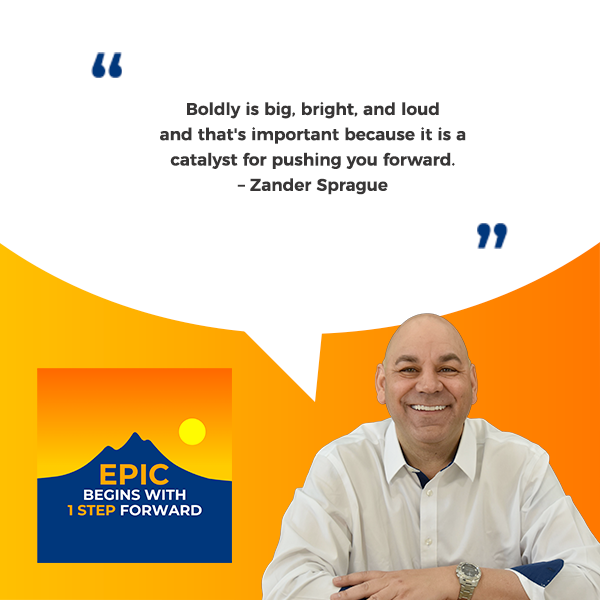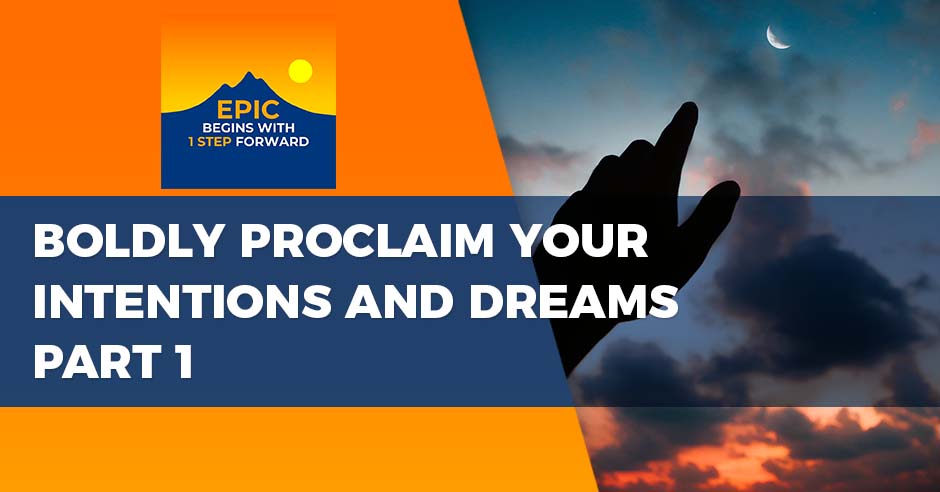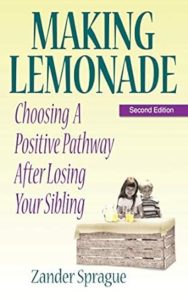Don’t sell yourself short. Dive into a riveting episode where we unravel the secrets of boldly proclaiming your goals, visions, and dreams with our very own, Zander Sprague. The conversation unfolds with Zander’s resilient pursuit of a speaking career during the pandemic. Learn the power of the 97/3 rule, discover editing hacks with Descript, and grasp the importance of structure and timelines in achieving audacious goals. Dive into the essence of boldly declaring intentions, embracing failures, and infusing enthusiasm. Don’t miss this episode packed with insights on making big dreams a reality.
—
Listen to the podcast
Boldly Proclaim Your Intentions And Dreams Part 1
We’re going to launch into what must be one of the most important topics, which is how to boldly proclaim your goals, visions, dreams, your purpose, and what you’re going to do because if you don’t have it specified, you probably will miss it every single time. Before we dive into that content, we want to get an update from Zander because he is taking on this heroic, epic journey of deciding to take his speaking career a quantum leap forward during the pandemic.
97/3 Rule
The Coronavirus. Do you remember in 2020 when all events and conferences were canceled? During this most difficult period, he has decided and proclaimed that, yes, he is decisively moving forward on his lifelong dream of becoming a speaker who speaks to crowds of many thousands. He certainly has the skill. Zander, we love to follow along and hear about what went well and what didn’t go so well. This is the completion of week number two, after you decided, “Yes, I’m going for it. Greenlight, all systems go. In spite of challenges, I will not be denied.” Tell us about this.
It’s like anything. We boldly decide that we’re going to do stuff in a given week and some of it happens and some of it doesn’t. I certainly had one of those weeks where I got a lot done, but I didn’t necessarily have everything done that I wanted done. That’s okay. I think we need to be gentle, and that’s what I call the 97/3 rule. That is this. When we’re doing stuff, 97% of our day is good, 3% may not be as good. Let’s not focus on that 3%. Let’s focus on the 97% that is good.
Let’s focus on the 97% I did get done. I’ll mention the 3%. A tool that Aurora actually introduced me to but had not used yet is called Descript. It’s this unbelievable software where we can take our video podcast or podcast, it doesn’t matter, and I can go in and edit it. It will go in and do stuff like take out all the ums, all the ahs. It does that automatically and will adjust the video accordingly. That’s spectacular.
People would want to take advantage of that. That’s amazing.

I went in and I’m in the middle of our recording last time, I had a moment where I hit the mic and I was like, “I hit the mic,” and we’re like, “We need to take that out.” What it does is we’ll take this video, it will create a transcript for you so you can see all the words. If I want to export all the words, I have that for my book. I’m going to do that. Also, I can see where that mistake was. I went in and highlighted it and it was gone from the audio and the video. It’s amazing.
When I heard about Descript, it sounded absolutely amazing. People can check that out. That’s a huge breakthrough. There’s an app for that. Doing that manually is so hard. What else happened, the things that you tried that didn’t work that you want to warn people, “Don’t go there,” or any other highlights of things?
For me, structure is important. Although I had stuff, I didn’t actually set timelines for myself to do stuff. The, “I’ll get to that,” happened to me. Frankly, I wanted to have been all the way through editing the last episode. Part of my goal is to not be like, “I now have to spend six hours editing stuff, but only have an hour to go edit,” because it’s obviously a lot easier.
It makes sense to edit each show as we do it, and it’s not a huge backlog. Also, it’s in your short-term memory, like you remembered that you hit the mic and had to take that out. People at home, don’t procrastinate or you’ll end up with probably twice as much work because it’s harder to do later.
When we put it off, then it becomes bigger and harder and it seems insurmountable and it’s not. Last time, I talked about the pizza analogy of we eat a pizza one slice at a time. If I do this one slice at a time, it’s a lot easier to do.
When we put it off, then it becomes bigger and harder and it seems insurmountable. It’s not.
We’re under a pretty aggressive timetable recording an interview that will become a chapter in your forthcoming book. That’s pretty aggressive, ambitious, enthusiastic timetable. Let’s put it that way. It sounds like you would benefit from blocking off time for editing and perhaps for prepping.
In some ways, because of the pandemic and stuff, having a boatload of time on my hands, it’s almost worse because you’re like, “I’ll do that at noon.” I found myself by Saturday, I hadn’t done as much as I wanted to do. I’m like, “No, I’ve got to set some specific times.” As I said, I’m structure boy. I have structure. I can execute to it.
We’ll add to your structure. I want you to put that on your calendar then because I’m not only your interviewer. I get to be your coach. We’ll get you to put that on your calendar, hopefully before the end of this. This is week number two, as I said, with Zander’s epic mission to take his speaking career a quantum leap forward. He’s done a lot in two weeks.
Getting To Know Zander
He decided, “Yes, I’m going to go for it. Pandemic or no pandemic, I will not be denied.” He’s rearranged his office. He’s got his lighting, he got a mic, he got the sound, he got Descript. He edited the videos. He decided on the chapter outlines. Each week, we have a focus. This is the second week. Actually, you have done quite a bit, and I know you can do more because distractions do happen when you’re in love, which is a great thing. All right, so let’s move on. Before we move on, for the benefit of those who don’t know you, perhaps recap quickly who you are in case they missed the first episode and you want to backtrack and catch the first episode so you can follow Zander on his entire epic journey.
My name is Zander Sprague. I’m an Author, Speaker, Coach and Mental Health Therapist. I do wear a lot of hats, but all of it is my mission to help other people choose a positive pathway to be their own choice champion. Simply put, that means realizing that every single day, we have choices. When we utilize choice, it’s amazing how our life transforms. I made a choice to work with Aurora and move my career forward. Aurora listed a lot of the stuff I’ve done. I’ve got a URL. There’s all of the little back behind-the-scenes stuff that makes a dream happen.

Boldly Proclaim Intentions: Every single day, we have choices. When we utilize choice, it’s amazing how our life transforms.
You even had a T-shirt.
I did. I had a T-shirt. I’m wearing my Choice Champion shirt, but I have a T-shirt that says Epic Begins With One Step Forward. I’m working on a logo, a picture with the statement that a picture’s worth a thousand words.
Boldly Proclaim Your Intentions And Dreams
You had the a-ha to come up with a new chapter called Epic Begins with One Step Forward. You thought, “Do you like this, Aurora?” I love it. You got the URL, then you got the T-shirt. You actually have done a lot. For those of you at home who went to become speakers like Zander, you could copy his enthusiastic Go for it attitude. I love launching Thought leaders. Of course, Zander is a thought leader. You get to watch him being launched as you tune into this show. How to boldly proclaim your intentions and dreams is our topic. Why is that important, Zander?
If we don’t have a destination, it’s hard to get there. I think all too often, people play small. They have big, bold ideas. They have wild dreams and fantasies of what they think they would like to do, but they don’t. They might go a little towards it, “Maybe I want to write a book, but maybe I’ll just write an op-ed in the local paper,” versus writing the whole book or choosing to write a book.
Look at you. You didn’t have the goal to speak to another group of 50 people. Do you want to speak to 3,000? I love this how to boldly proclaim your intentions and dreams. I think that’s important because, like you say, we water it down until we think it’s within reach. It’s such a pathetic goal. We always fall a little bit short of whatever our goal is, so we’re the same. Whereas if we have a 10X goal or 100X goal, it’s a huge stretch goal, but then our mind gets engaged in a different way and we have completely different results.
I also think that boldly proclaiming it, in some ways, puts you on the hook.
Especially if you declare it. That sounds like what’s happening with the proclaiming.
I think that boldly also means full enthusiasm because who do you want to buy a product from? Do you want it from this guy? “Hi, I’m Zander. I would love to teach you how to do something,” or the, “It’s Zander. I’m so excited to share this with you.” When we watch YouTube, which most of us do, and those ads come up, those people are excited about their product and they should be. The only way we’re going to buy it is if someone’s enthusiastic and selling it to us versus, “We think you might like this.”
I think that’s where the boldly comes. I think we all know that boldly is big, bright, and loud and that’s important because it is a catalyst for pushing you forward. If for no other reason, then you said it with some enthusiasm and someone heard it and someone’s going to go, “By the way, Aurora, how is your new book going?” Wait, hold on.
You have a little story about your first book and maybe you have a story about boldly proclaiming that you’re going for it. Would you like to share those two contrasting stories?
Sure. The idea for my first book, which by the way is called Making Lemonade: Choosing A Positive Pathway After Losing Your Sibling. It’s about losing my older sister, Lucy, many years ago. There weren’t a lot of books. The idea for the book came from having coffee with a friend of mine whose brother had passed. I asked how she was doing. She made this offhand comment, which was, “Before I came over, I was in Barnes and Noble.” For the young people, that’s a bookstore where you would go in and buy stuff. She said, “There were a ton of books on loss of a spouse, loss of a parent, loss of a pet, but there were no books on loss of a sibling.” As I walked away from that, I was like, “I know that. I could write a book about that.”
Keep in mind, I didn’t think of myself as an author, so I was like, “I’m going to write a book? I wrote and sat on the book for five years because I was afraid to put it out there. Let’s fast forward many years, and here I am. I’m clear about where I want to go and what I want. In talking with you, Aurora, I was like, “I need some help. I can see it, you could see it, but how do I get there?” You have lots of experience helping people to create and manifest their million-dollar messages. Here we go. I’m going to boldly proclaim that I’m on an epic journey to ramp up my speaking career, book sales, and all of who I am and share it boldly with the world.
I love that because I’ve known you for a number of years, and you are so enthusiastic, have such great content, and love to help. I was frustrated, like, “We need to get your message out.” I love that you’re decisively and boldly stepping into the spotlight. Can you share how you felt differently? You wrote your book, but then you sat on it for five years, probably due to fear rather than procrastination. This time you were like, “No, I’m not going to play small. I’m going to go for it.” How did those two experiences feel different?
I think the second time, part of it is having written a book. It is not as hard the second or third time as it is the first time you go to do it. I think there’s been a lot of learning that’s gone on in years in terms of me learning how I need to work. I am a spoken author. I wrote my books by dictating. I think another thing that’s different is I’ve had an incredible amount of time to think about what I want. I’m tired of being small. I’m tired of the excuses of why I can’t do something. The fact of the matter is each and every one of us can do whatever it is that we choose to do. We simply have to take that step forward and start to do it. Also, recognize the fear, but not let the fear get in the way of our dreams.
Recognize the fear, but not let the fear get in the way of our dreams.
Don’t play the game so that when I get over the fear, I’ll go for my dreams.
As I said, I’m the perfect example of, “Yeah, I’ll do that later,” but when does later happen? When I get up to 12:00, later is now 2:00. It’s always in front of you.
To use me as a bit of an example, my next book is called Spoken Author and Zander is my case study. It is a wonderful way for us to help each other step into the next phase. I’m super stoked about helping people like you get their message out in this way that’s so much easier by speaking it out. It’s so difficult for people who aren’t writers to wrangle words and then it gets all nodded up and then it sounds like all choked instead of their natural energy.
To ground this conversation about how to boldly proclaim your intentions and dreams, many people may have heard this, but I think it’s definitely worth mentioning again. In New Women Magazine, they reported a study of Yale University graduating seniors. Only 3% had specific written goals, 10% had specific goals, but they were not written down and 87% had no specific goals at all.
Twenty years later, the 3% who had those specific written goals outperformed the other 97% combined. The source on that is New Woman Magazine, May 2007. It’s also in one of my workbooks. Just to ground us. This is a non-trivial issue to make a clear, specific goal to write it down and then proclaim it because when you tell other people, you’re on the hook. You’re committed.
An example of doing that was I had always wanted to run a marathon. I wasn’t sure how I was going to do that. I did some research. I joined the team in training, but then I to do fundraising. I had to tell everyone that I was running a marathon on this date. Now, I’m on the hook because I told hundreds of people that I was doing something. I like to be someone who says if I’m going to do something, I’m at least going to give it my best. If I’m not successful, it wasn’t because I was afraid or I didn’t try.
I think we dream big and then we don’t know how to get there but that’s okay. Our day is not fully functioning, meaning I don’t know what’s going to happen today. There are certain things that I know are planned, but right now, I have no idea exactly how the whole recording is going to go. However, I’m still here and I’m doing my best and it’s going to be good.
It’s better that you had me press record.
There is that, that I would hate all this content. We’d go, “That’s incredible. We didn’t record it.”
Aurora’s Personal Goal-Setting Story
What I like about this conversation is it’s alive. Whereas if it was all like rehearsed, every beat, if people would understand that it’s a performance rather than a conversation. This is a conversation. I’m going to also share a personal example of boldly proclaiming my intentions and dreams. A little bit of backstory. My business involves events. That’s the primary way that I help thought leaders connect.
We go to exotic locations. We went to the Nice, the South of France one year. We went to Florence, Italy. Zander and I and some other people went to Mexico in February 2020 just before the Coronavirus was officially seen as a problem, which was declared in the middle of March by President Trump. I loved it. I love hosting events.
In February, I had all planned out my events for the year and where they were going to be. It’s the engine for my business. It’s a great component of helping thought leaders or helping the coaches that I train. The wheels came off in the middle of March. All events are canceled, conventions are canceled, so is Zander’s speaking career. My business, which is event-centered, is very problematic. For about a month, I was depressed and didn’t have any wind in my sails. I thought, “Aurora, stop that. You have to come up with a big, bold goal. Surviving is not a big bold goal.” We want to be thriving.
I set myself a goal that I thought was a bit of a stretch, given the pandemic, although I have done more than this before and liked it. I set the goal of $100,000 in 100 days and I remind myself of my big bold goal all of the time. I have my bullseye. I’m not that money-motivated. Actually, it was helpful doing that. I noticed how I wasn’t paying attention.
I started paying attention because I’ve got this and I’ve got something else on my fridge. I started the challenge to myself on May 30th. I was paying attention, so I asked people for orders. When you ask people, you never know what happens. In 55 days, I had exceeded my goal of $100,000 in 100 days. It was interesting. The day that happened was so rocky. It was like, “I did it. I’m on top of the world.” It was like, “What if I can’t do it again? What if it was a fluke? What if that’s all the revenue for the whole year? What if I announced this and then that’s like a one-shot deal, then I’ll be embarrassed?”
I’ve been shooting videos, although I haven’t released them yet. It’s called Diary of a Determined Entrepreneur. Part of that money actually came in through a grant from the government that I had applied for months earlier. I didn’t hear back. It’s a 30-year loan at 3% interest. Basically, a grant. I thought, “I shouldn’t count that.” I had this whole story and I’m like, “No, I said $100,000 in 100 days. I didn’t say how.” I get annoyed when my clients go, “They don’t count things.” It’s like the person who’s in the middle of a flood on the top of the roof of his house, praying for God to rescue him.
I’m sure you’ve heard this fable, but it’s a good one. People come by in a rowboat, “Can we give you a lift?” “No, that’s okay. God’s going to save me.” Somebody comes by in a canoe, “Can we help you?” “No, God’s going to save me.” Some final person comes by in a powerboat, “Can we help you?” As he was sinking, he said, “No, I prayed to God. God’s going to save me.” He drowns and then at the gate to heaven, he said, “Why didn’t you save me?” He said, “What? You said no three times. I sent people to help you.” I thought, “No, I’m going to count that.”
On August 1st, I started another $100,000 in 100 days challenge, and all this money was pouring in from all kinds of random places. I’m on track to do the $100,000 in 100 days again. I want to underscore that is the important point behind all of this. It’s very important to me, but rambling to you perhaps. The important point is that the second time I said, “No, I’m going to do it again,” I started asking better-quality of questions. Instead of thinking, “Where can I pick up another $1,000 or $10,000, $50,000 client,” I started thinking, “What businesses need what I have?”
I came up with a vision to be a catalyst for $10 million worth of value. Now I have an idea to launch a whole new company and raise $5 million for it. There’s also this other element: if you continue asking high-quality questions, you will up your game because you will get answers if you don’t wimp out. I almost wimped out there for a minute, but then I’m like, “No.” I’ll probably be announcing some time that I did instead of $100,000 in 100 days, maybe $1 million in 100 days. Money is just a way of keeping score of the value add. Anyway, I wanted to share that personal goal-setting story because that’s happening right now.
The Value Of Asking
That’s awesome. Congratulations, Aurora. I’m so excited for you. Thank you. It’s funny that you were talking about asking for help and value. There are two things that popped into my mind I wanted to share with you and the audience, which is, there’s a story. Tip O’Neill was the Speaker of the Congress, the House of Representatives for 30 years. I was from Boston. I grew up in Boston. He was at an event. This woman came up and said, “I didn’t vote for you in the last election.” He said, “Why not?” She said, “You didn’t ask.”
I have found that I get so much more when I ask specific questions for the help that I need. We have these big, bold intentions, these big dreams. Rare is a person who can achieve it on their own. You need to ask for help, but you need to ask specific questions because if I come to Aurora and go, “Aurora, I need help with my business,” Aurora wants to help me, but she doesn’t quite know what my request is. She’s not sure whether she can say, yes, no, or “I could do this part, but I can’t do this part.” I think an essential part of our big, bold intentions and goals is to ask for help and make sure your ask is specific because people like you want to help you. Strangers actually get excited and want to help you.

Boldly Proclaim Intentions: An essential part of our big, bold intentions and goals is to ask for help and make sure your ask is specific.
The other thing in talking about value is if you have Lamborghini ideas, don’t sell it at Yugo prices. I know the value of what I have. You set your intention and your pricing as that. If your dream is big, if your dream is to make it to the Olympics, no matter what someone says, you go, “I’m going to get there.” The story that made a great movie of Eddie the Eagle who said, “I’m going to be in the Olympics.” The man was not an athlete. It’s a great story and a great example of boldly proclaiming your intentions.


